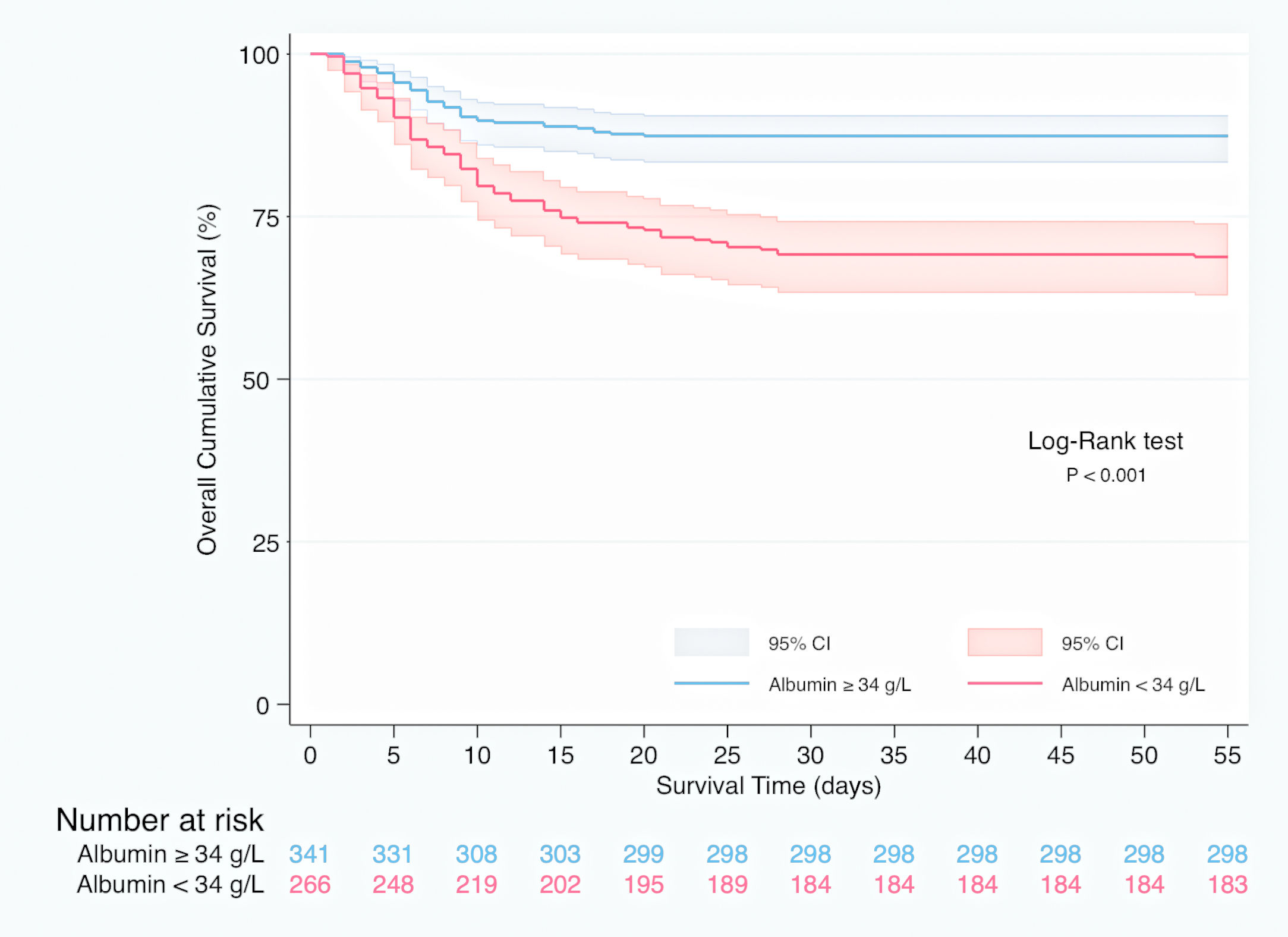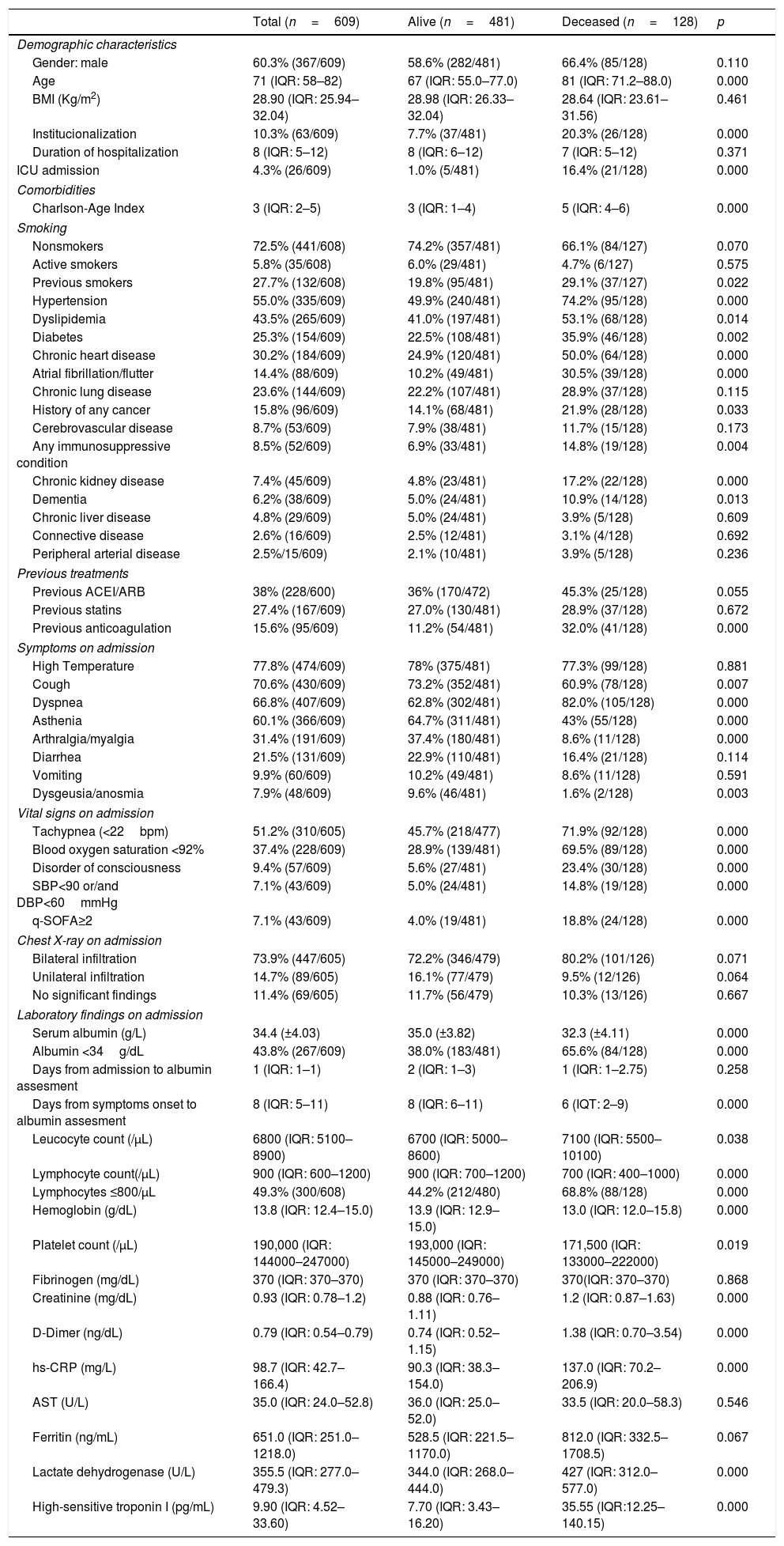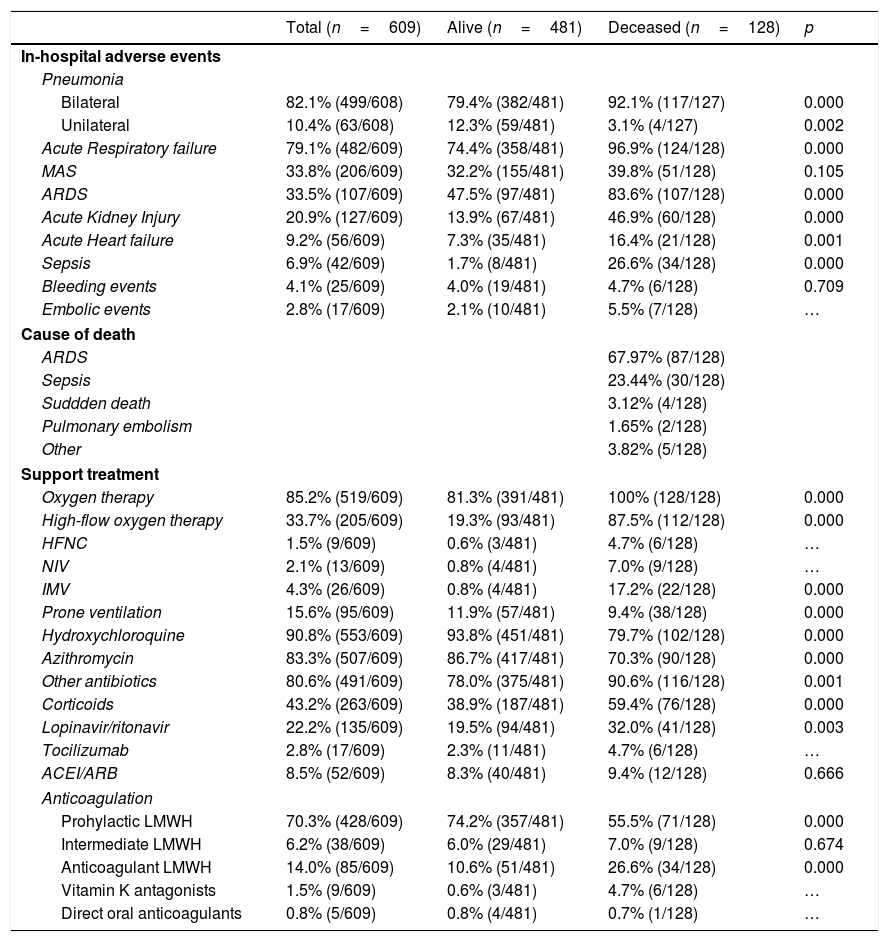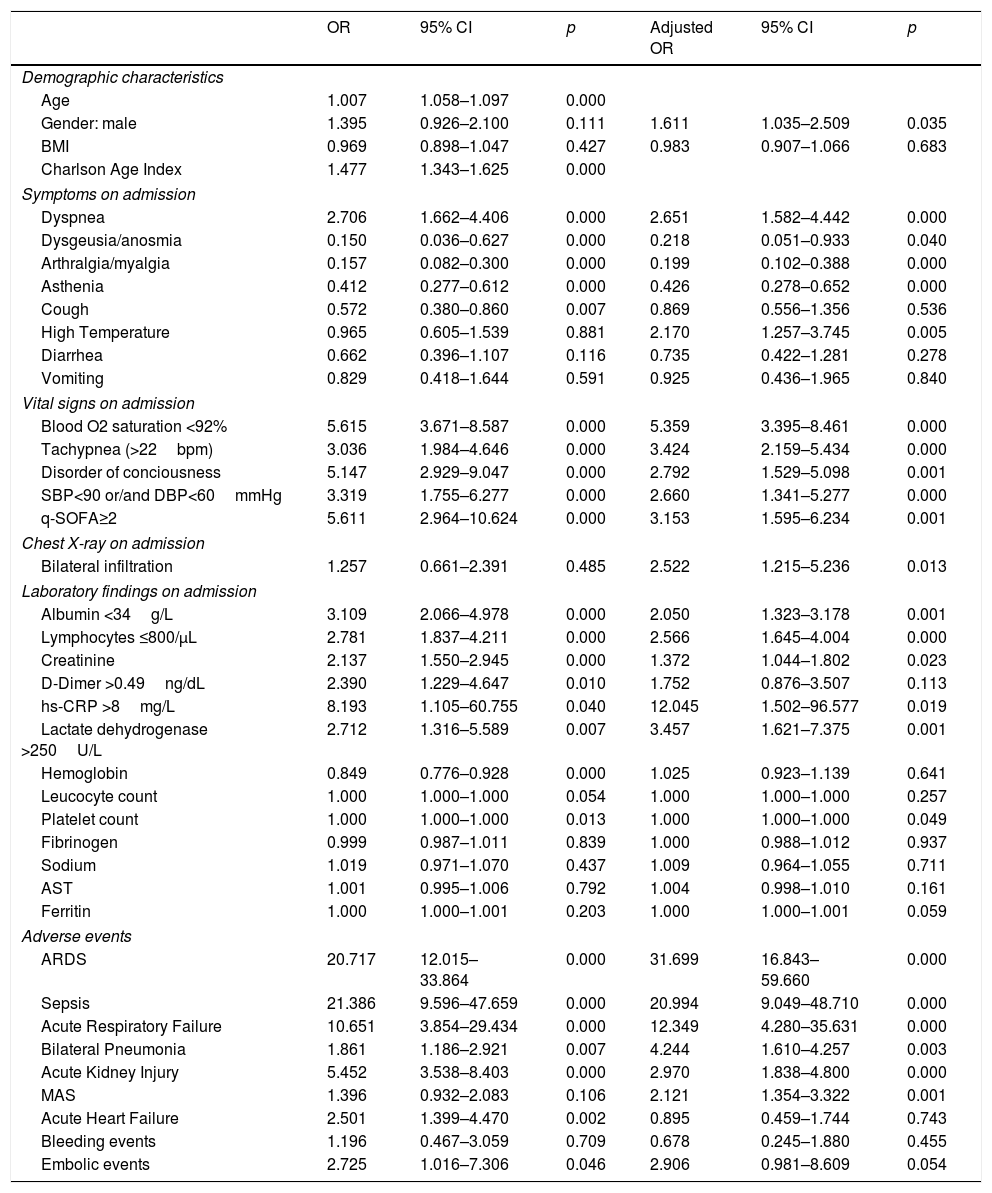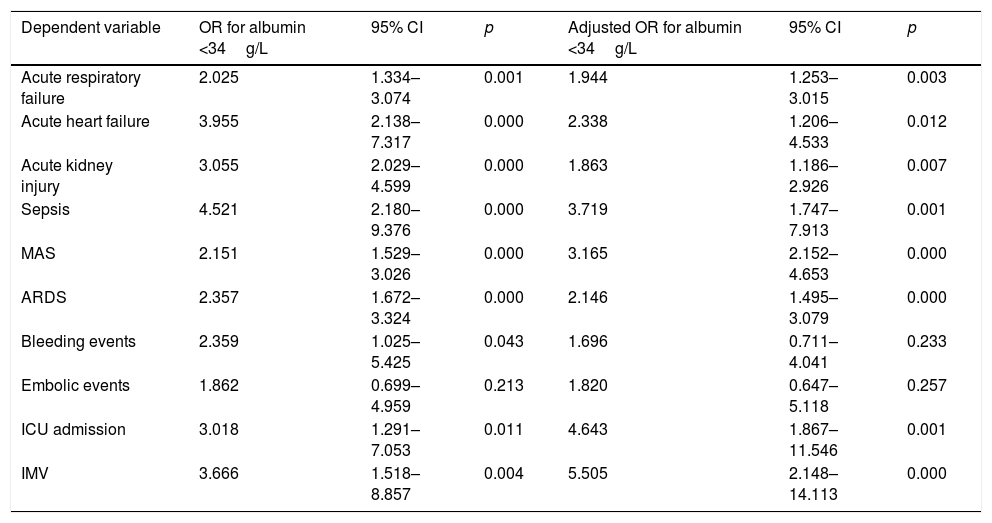Hypoalbuminemia is a negative acute phase reactant which has been associated with inflammatory response and poor outcome in infectious diseases. The aim of this study was to analyze the value of hypoalbuminemia on admission as a predictor of mortality and adverse events in COVID-19 patients.
MethodsWe analyzed retrospective data from a cohort of 609 consecutive patients, with confirmed diagnosis of COVID-19, discharged from hospital (deceased or alive). Demographic characteristics, previous comorbidities, symptoms and laboratory findings on admission were collected. Comorbidities were assessed by Charlson-Age Comorbidity Index.
ResultsHypoalbuminemia on admission (<34g/L) was more frequent in nonsurvivors than survivors (65.6% vs. 38%, p<0.001) and was significantly associated with the development of sepsis, macrophage activation syndrome, acute heart failure, acute respiratory distress syndrome and acute kidney injury, regardless of Charlson-Age Comorbidity Index. Hypoalbuminemia was a predictor of mortality in multivariable Cox regression analysis (HR 1.537, 95% CI 1.050–2.250, p=0.027), independently of Charlson-Age Index, gender, lymphocyte count <800/μL, creatinine, high-sensitivity C- reactive protein >8mg/L, lactate dehydrogenase >250U/L, bilateral infiltration on chest X-ray and q-SOFA ≥2.
ConclusionsHypoalbuminemia was an early predictor of in-hospital mortality in COVID-19, regardless of age, comorbidity and inflammatory markers. It also had significant association with severe adverse events, independently of Charlson-Age Comorbidity Index. Our results suggest that serum albumin determination on admission may help to identify patients with SARS-CoV-2 infection at high risk of developing potential life-threatening conditions and death.
La hipoalbuminemia es un reactante de fase aguda negativo que ha sido asociado a la respuesta inflamatoria y mal resultado en enfermedades infecciosas. El objetivo de este estudio fue analizar el valor de la hipoalbuminemia en el momento del ingreso, como factor predictivo de mortalidad y episodios adversos en los pacientes de COVID-19.
MétodosAnalizamos los datos retrospectivos de una cohorte de 609 pacientes consecutivos, con diagnóstico confirmado de COVID-19, que abandonaron el hospital (fallecidos o vivos). Se recopilaron las características demográficas, comorbilidades previas, síntomas y hallazgos de laboratorio en el momento del ingreso. Las comorbilidades se asociaron al índice de comorbilidad de Charlson-Age.
ResultadosLa hipoalbuminemia en el momento del ingreso (<34g/l) fue más frecuente en los no supervivientes que en los supervivientes (65,6 vs. 38%; p<0,001) y estuvo significativamente asociada a desarrollo de sepsis, síndrome de activación macrofágica, insuficiencia cardiaca aguda, síndrome de distrés respiratorio agudo e insuficiencia renal aguda, independientemente del índice de comorbilidad de Charlson-Age. La hipoalbuminemia fue un factor predictivo de la mortalidad en el análisis multivariable de regresión de Cox (HR: 1,537; IC 95%: 1,050-2,250; p=0,027), independientemente del índice de Charlson-Age, sexo, recuento linfocítico <800/μl, creatinina, proteína C reactiva de alta sensibilidad >8mg/l, lactato deshidrogenasa >250U/l, infiltración bilateral en la placa de tórax y q-SOFA ≥2.
ConclusionesLa hipoalbuminemia fue un factor predictivo temprano de la mortalidad intrahospitalaria en la COVID-19, independientemente de la edad, de la comorbilidad y de los marcadores inflamatorios. También tuvo una asociación significativa con episodios adversos graves, independientemente del índice de comorbilidad de Charlson-Age. Nuestros resultados sugieren que determinar la albúmina sérica en el momento del ingreso podría ayudar a identificar a los pacientes con infección por SARS-CoV-2 con alto riesgo de desarrollar situaciones potencialmente mortales y muerte.







